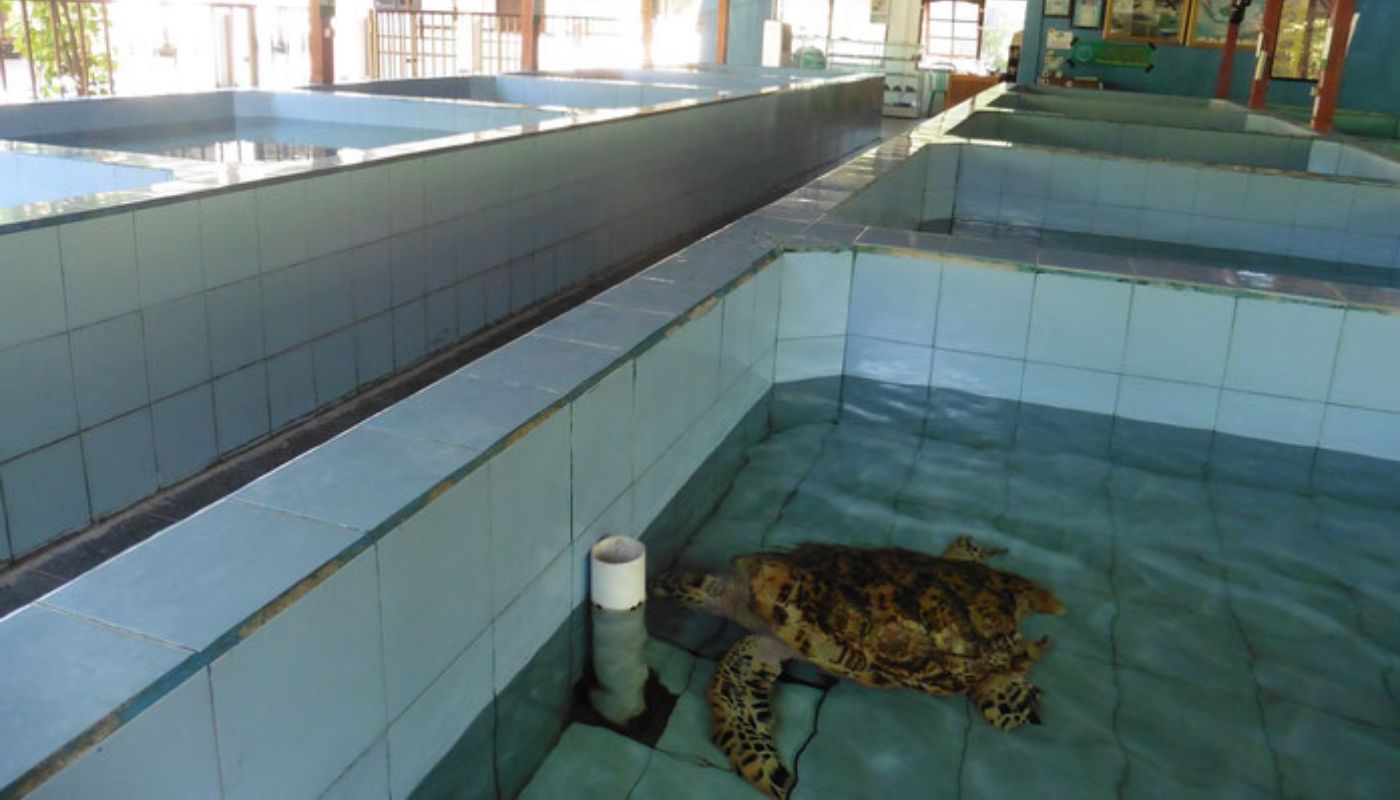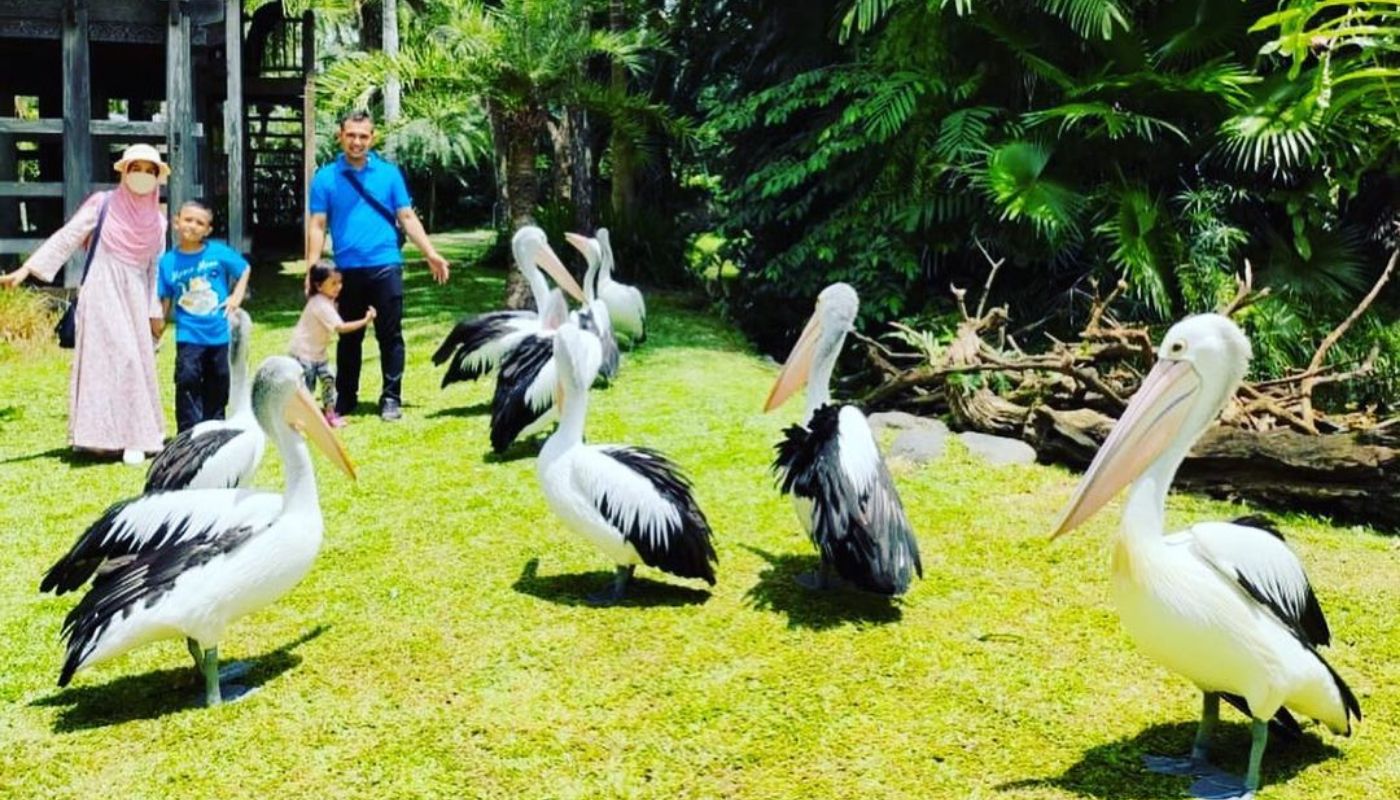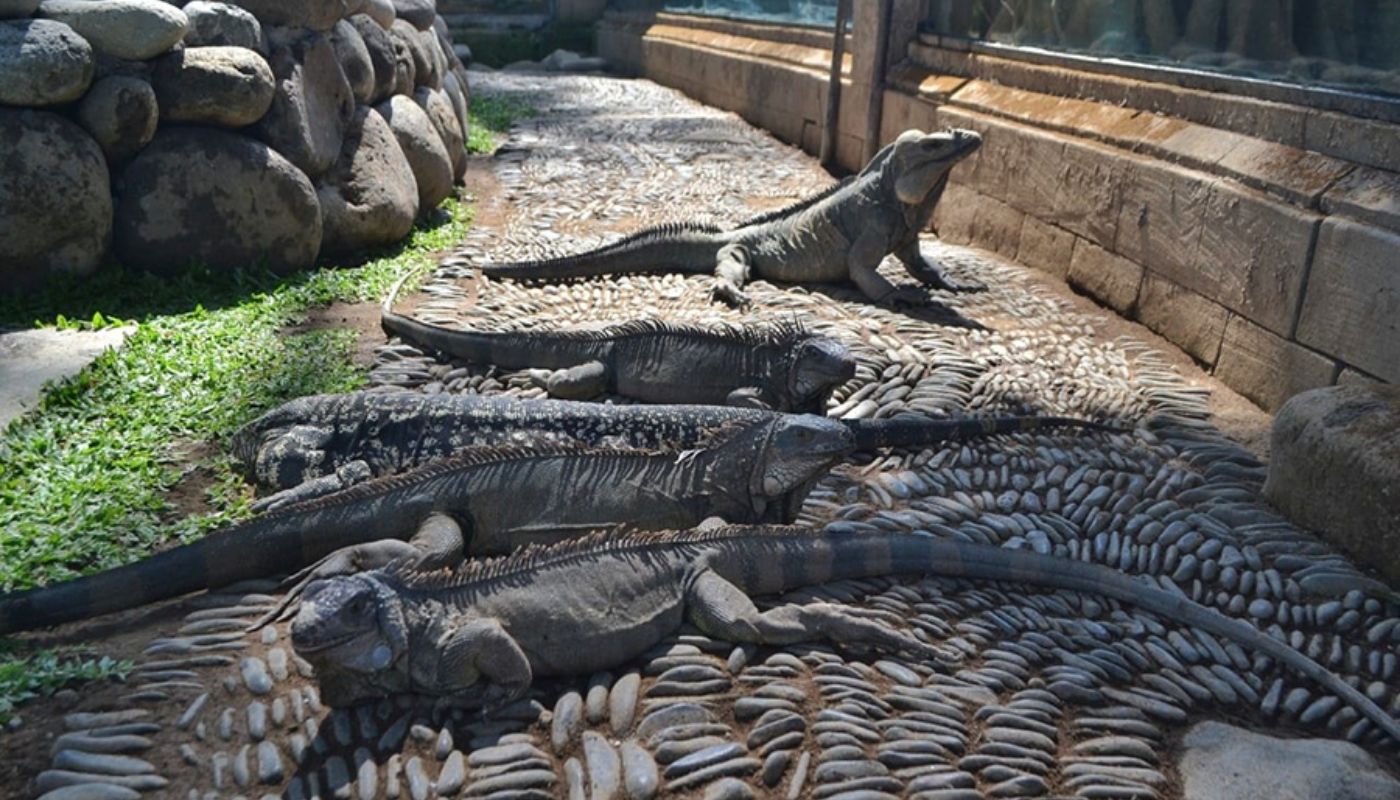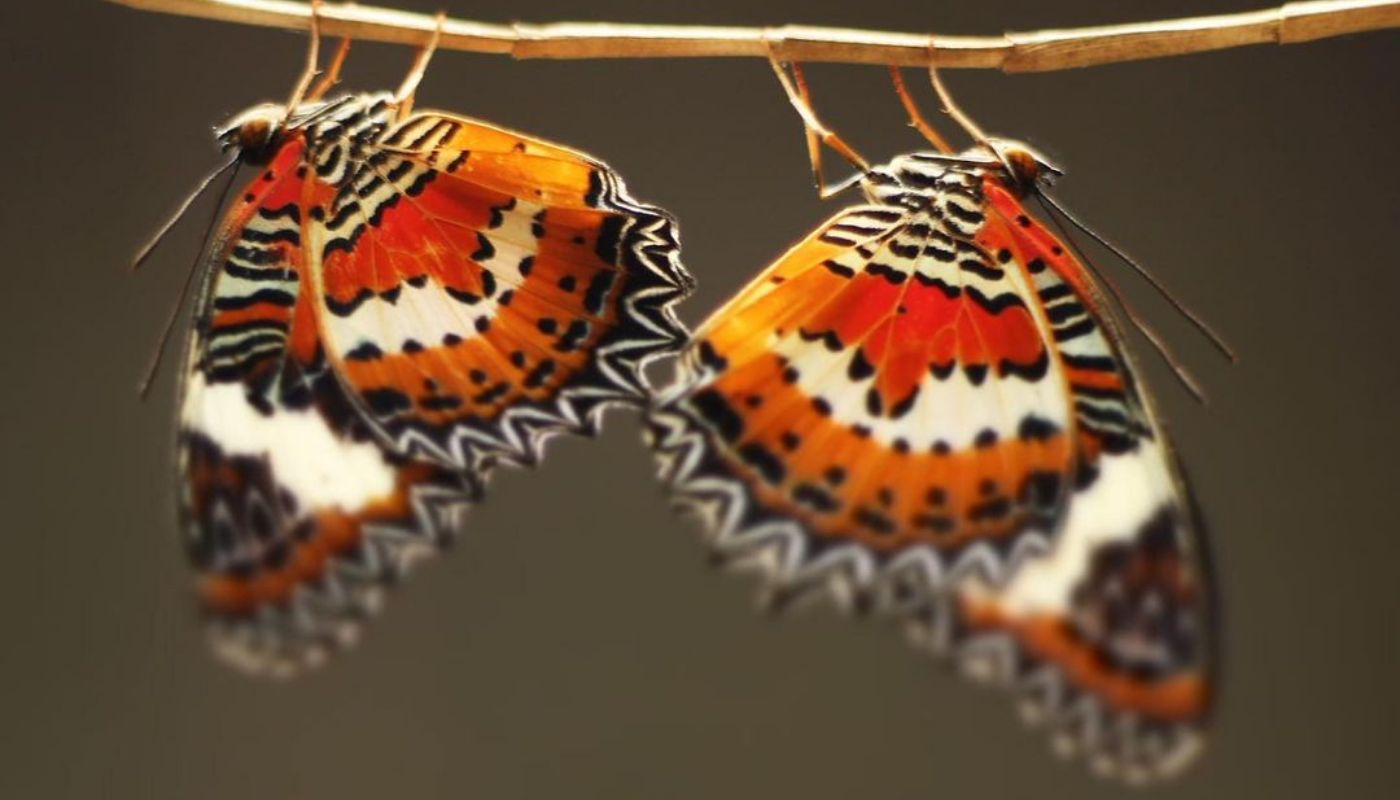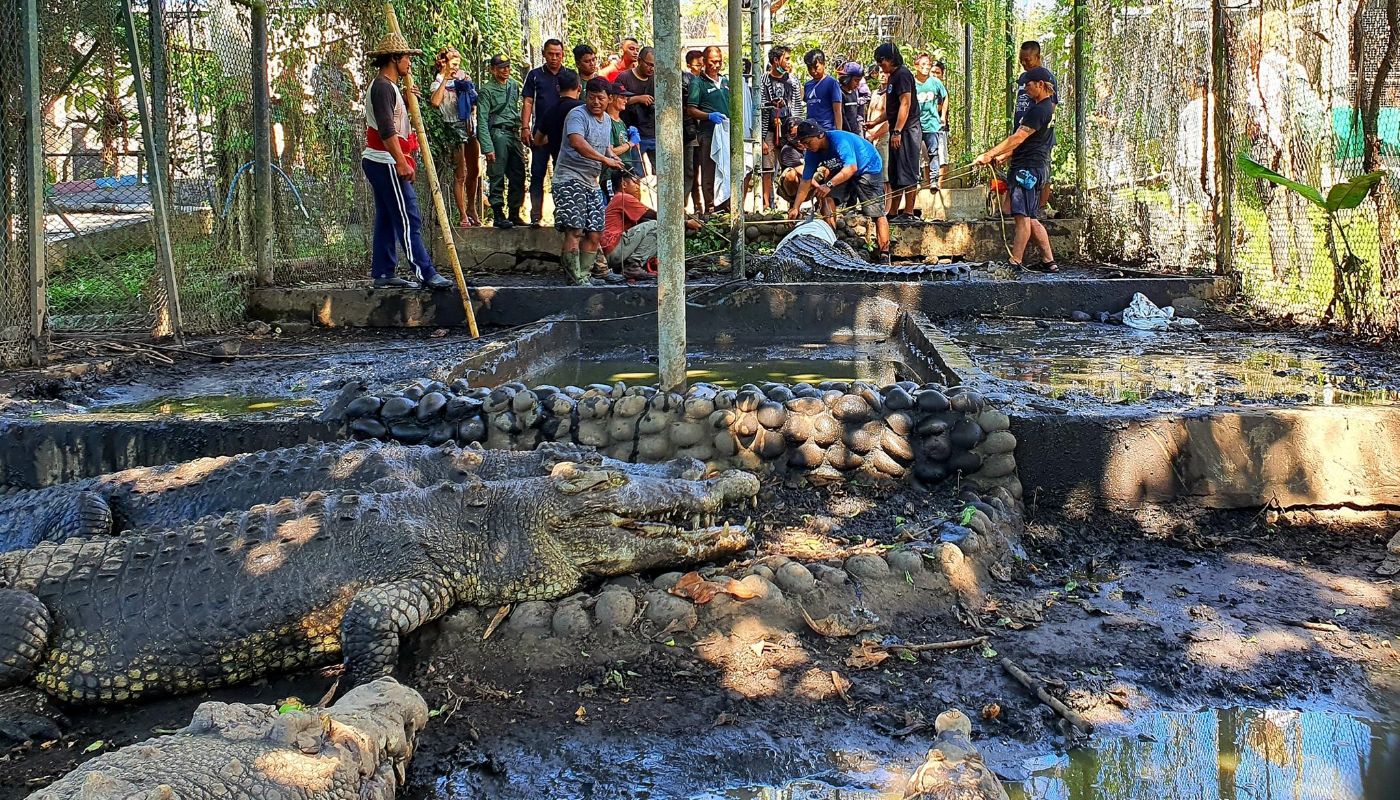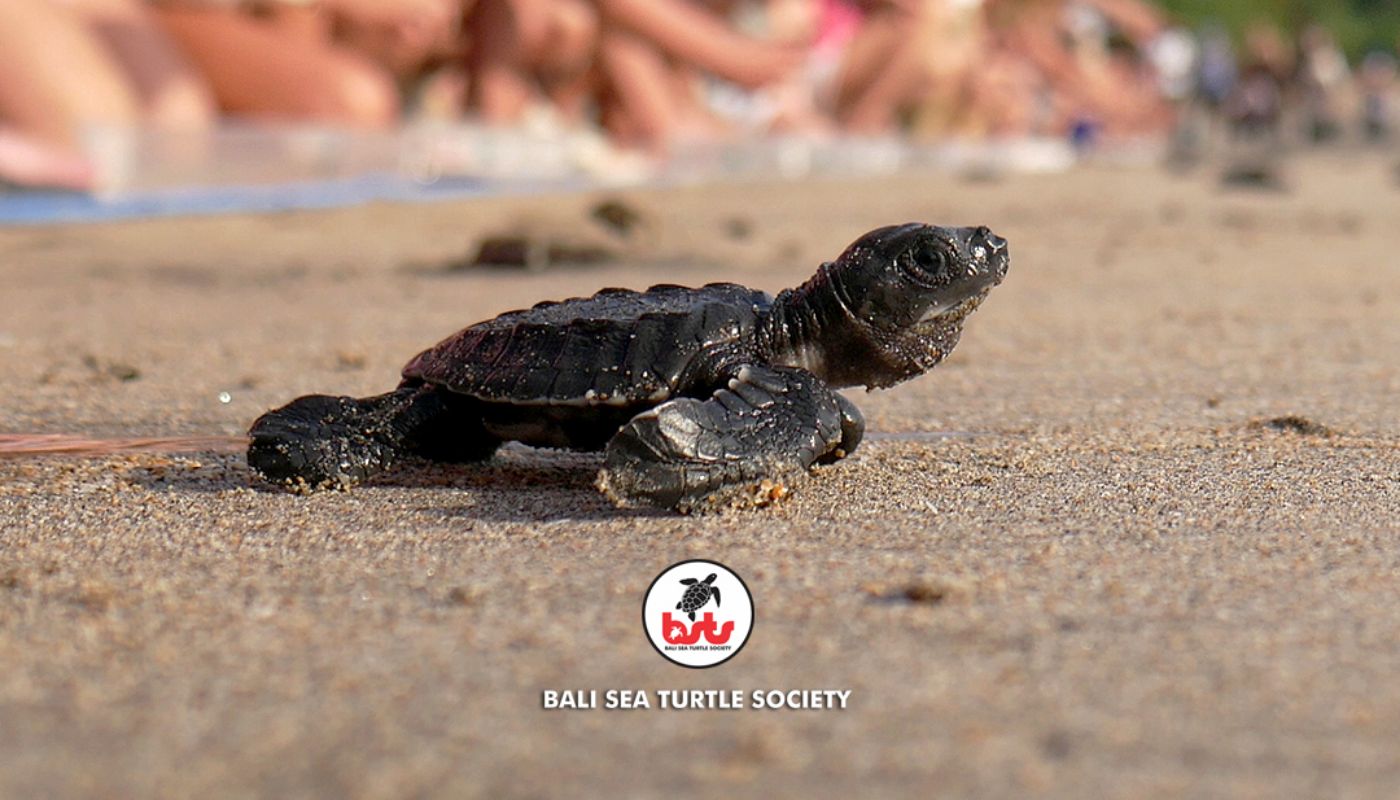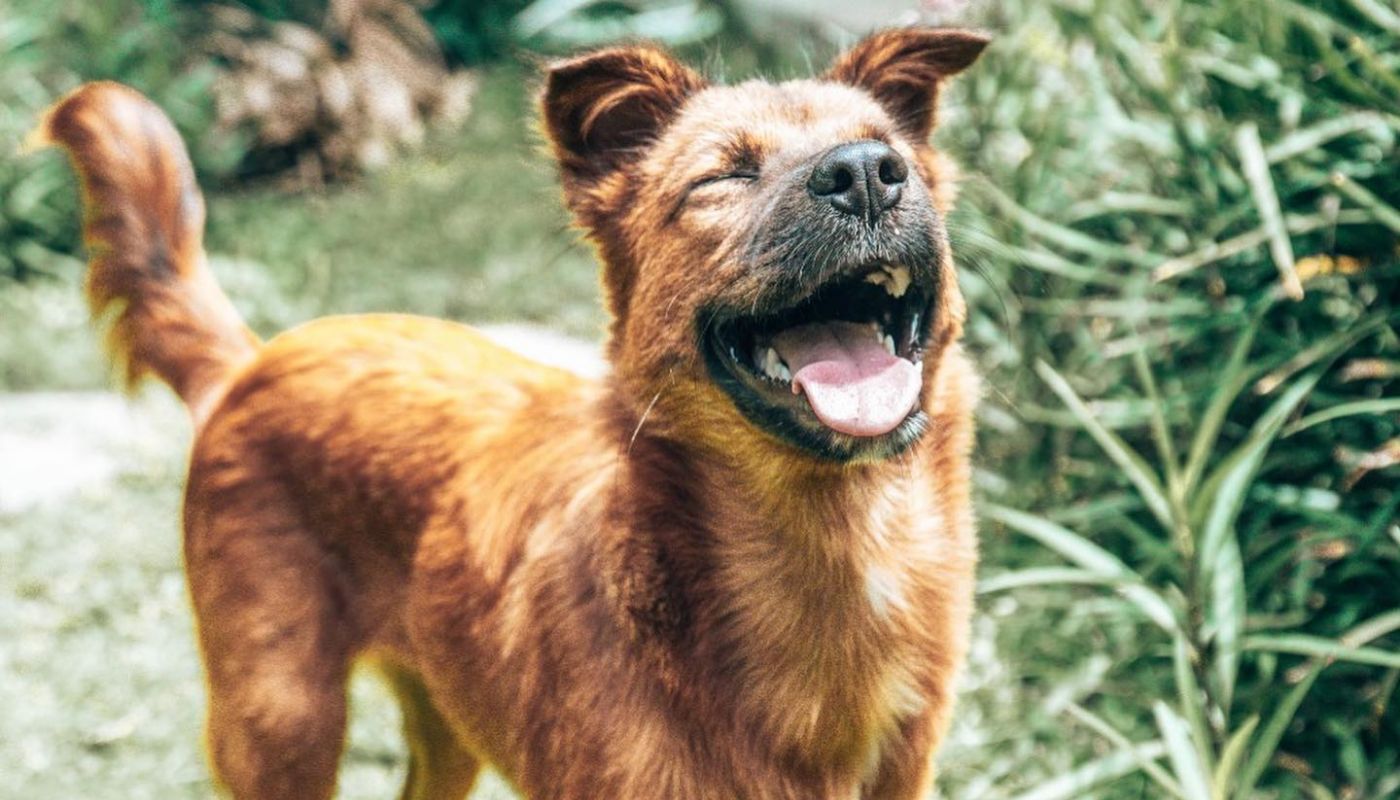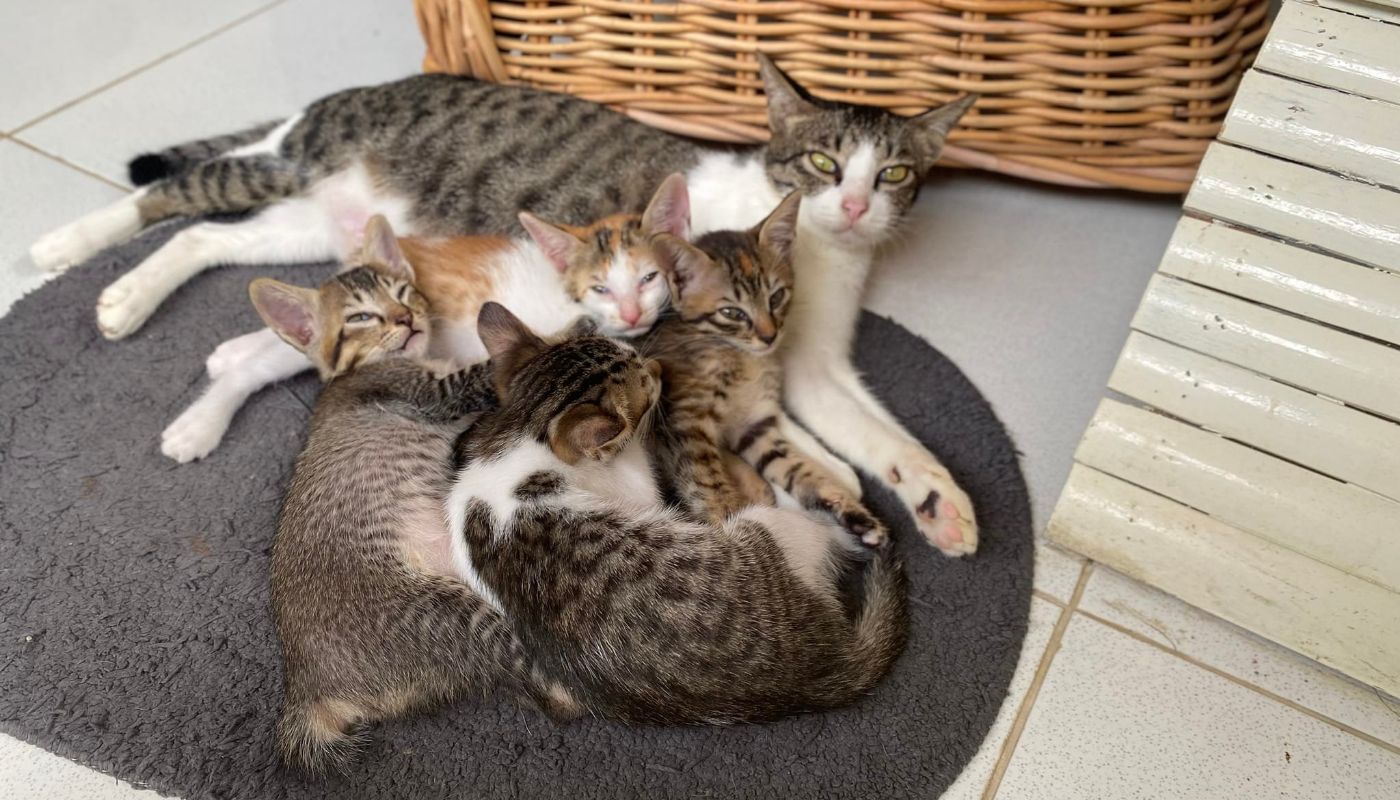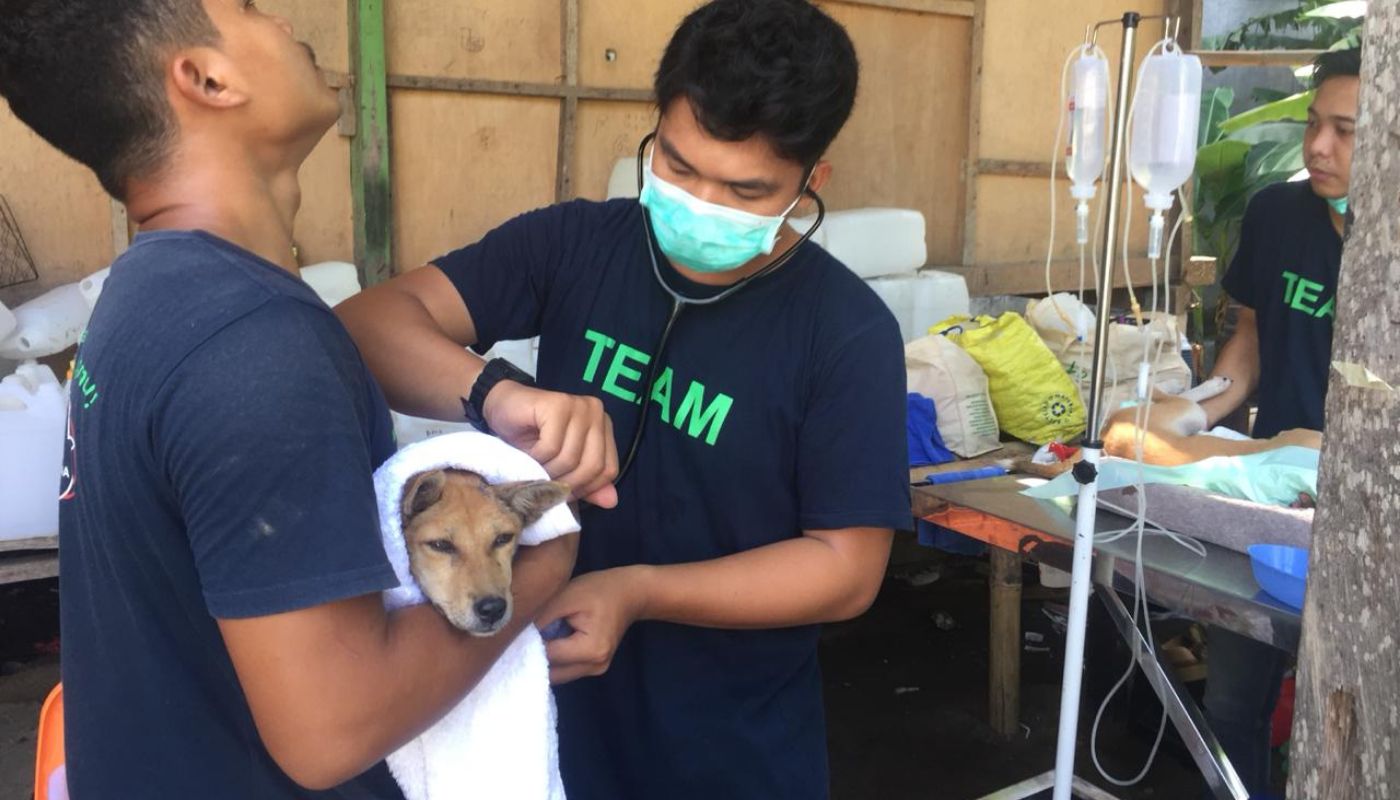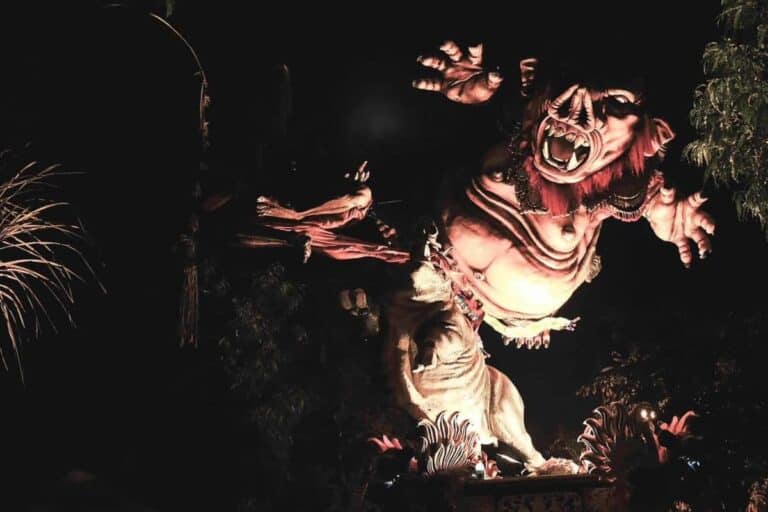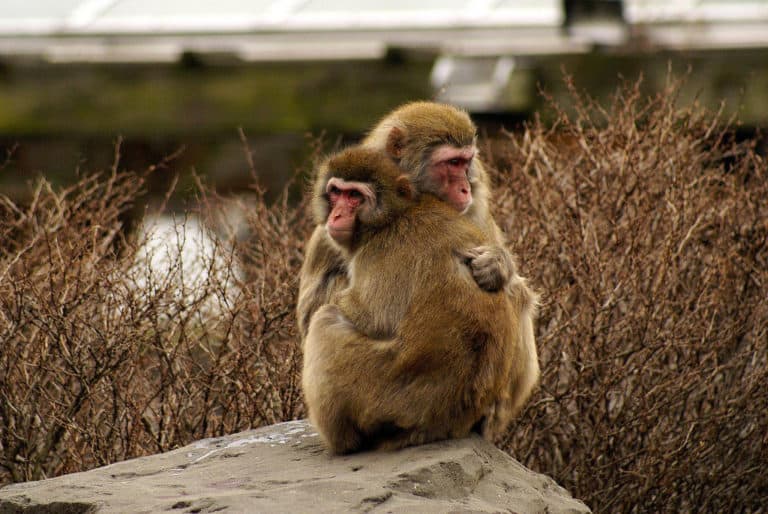The stunning tropical island landscapes of Bali are home to a thriving wildlife and collection of crawly creatures.
Monkeys roam the jungles, cats and dogs wander the towns, cows chow down in the fields, and lizards venture the rural areas for snacks.
The bustle of tourists that venture to Bali each year has brought upon a new wave of animal tourism on the island. Riding elephants, pictures with tigers and coffee from luwak has become part of the ‘norm’ for tours in Bali, but at the cost of the animal’s welfare.
In this post I’m going to outline all the incredible animals that live in Bali, and the spots that promise conservation and the healthy well-being of the wildlife for a guilt-free experience.
What Animals Live in Bali?
From the high flying monkeys to the floor slithering snakes, Bali has a wide range of native animals that grace its vast landscape.
Tropical, occasionally dangerous, and fascinating to look at, these animals wander the wild lands and sometimes get caught up in the towns. Here is everything you need to know!
Monkeys in Bali
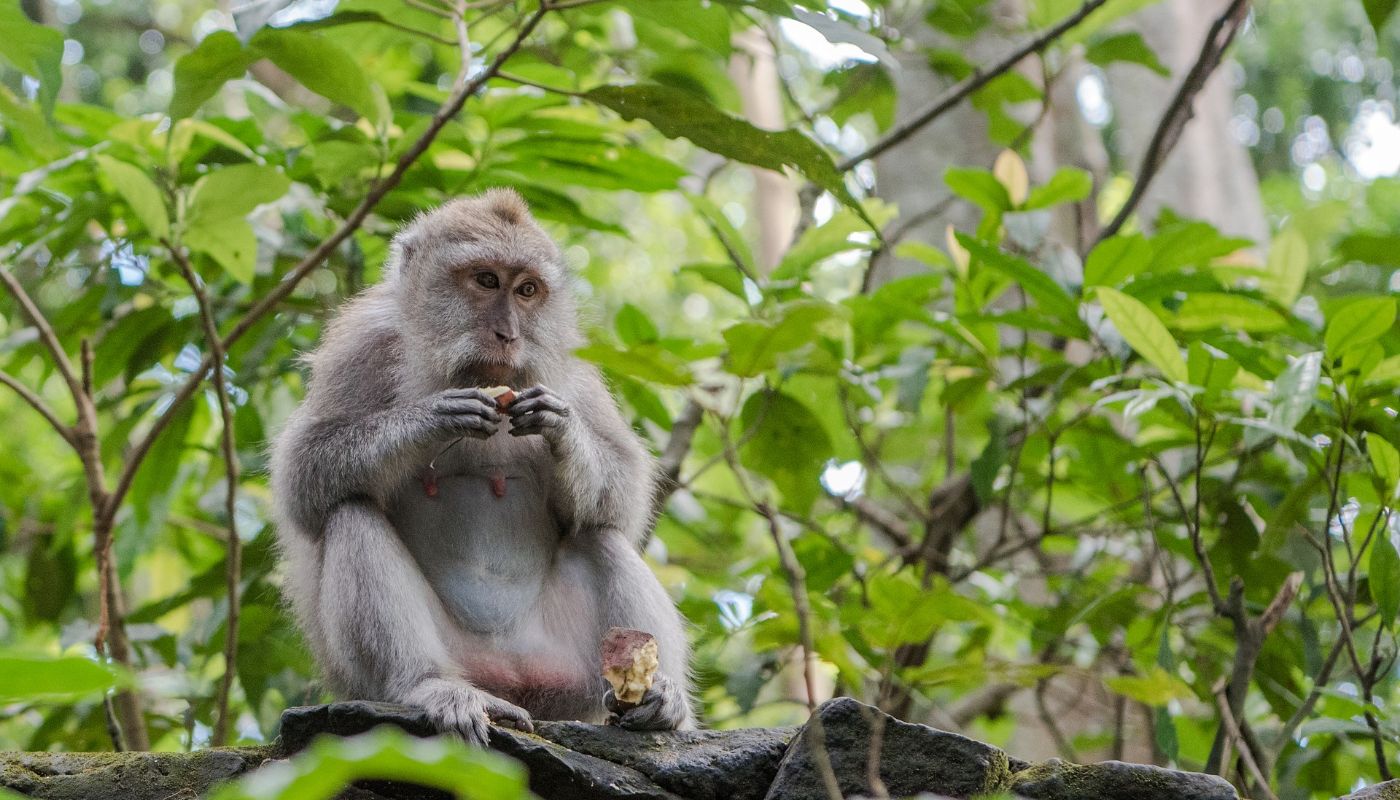
Taking charge of the jungles, monkeys are one of the most widely populated animals in Bali.
Their most famous home is the Ubud Sacred Monkey Forest, where you can interact with the furry scoundrels in their own habitat. Approximately 1049 long-tailed macaques live in the forest under the watchful eye of the local village council.
Known to be sneaky thieves of bags, hats and sunglasses, if you want to get up close and personal, don’t carry any special belongings.
You can witness tiny baby macaques clinging to their mothers, and friends grooming each other around ancient temples and towering trees. Beware, just because they are used to visitors, doesn’t make them friendly..
There is also a tribe of monkeys in Uluwatu, scouring the cliff sides and temples.
These macaques rose to fame in recent years for their new-found hobby of bartering! After stealing your sunglasses or hat, they will allow you to barter them back with tasty treats – unbelievable.
A study found that Uluwatu Temple is the only place in the world where monkeys have developed this skill – perhaps thanks to the hundreds of tourists they see everyday.
Watch out! The monkeys in Bali can be carriers of rabies, you don’t want a scratch or bite from one of these furry devils.
Snakes in Bali
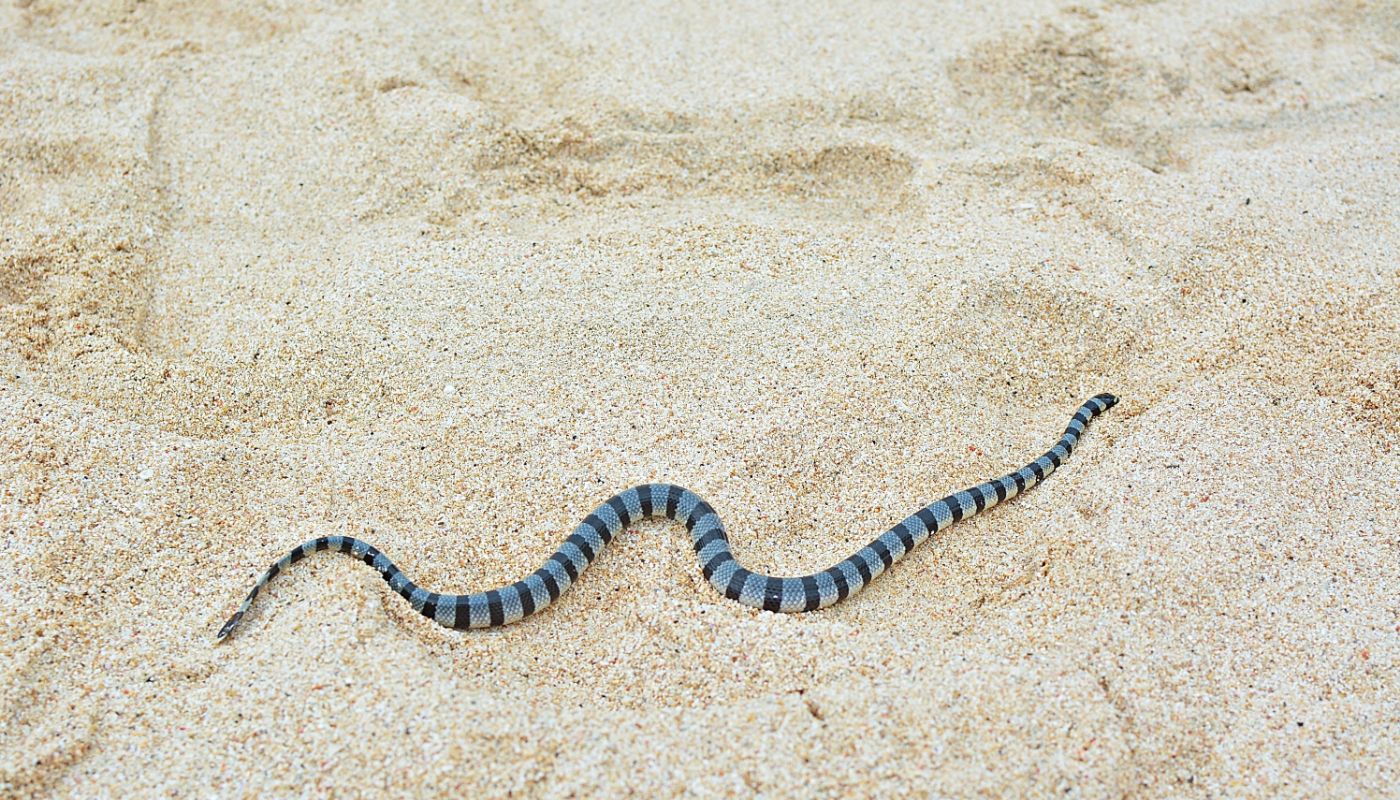
Now, I don’t know about you, but where I’m from snakes are very far and few between.
The thought of seeing a long slithering creature roll through my garden makes me very uncomfortable, alas, Bali has a healthy population of many different snake species.
Vipers, cobras, kraits and coral snakes explore the rural lands, waters and occasionally residential areas when they are searching for food.
Here are some tips if you encounter a snake in Bali –
- Don’t approach it. Snakes do not chase so you can back away slowly and safely.
- Keep an eye on it. If it’s on your property then watch where it goes but do not intervene with its path.
- Do not try to catch or kill the snake.
- Call a professional snake catcher!
Lizards in Bali
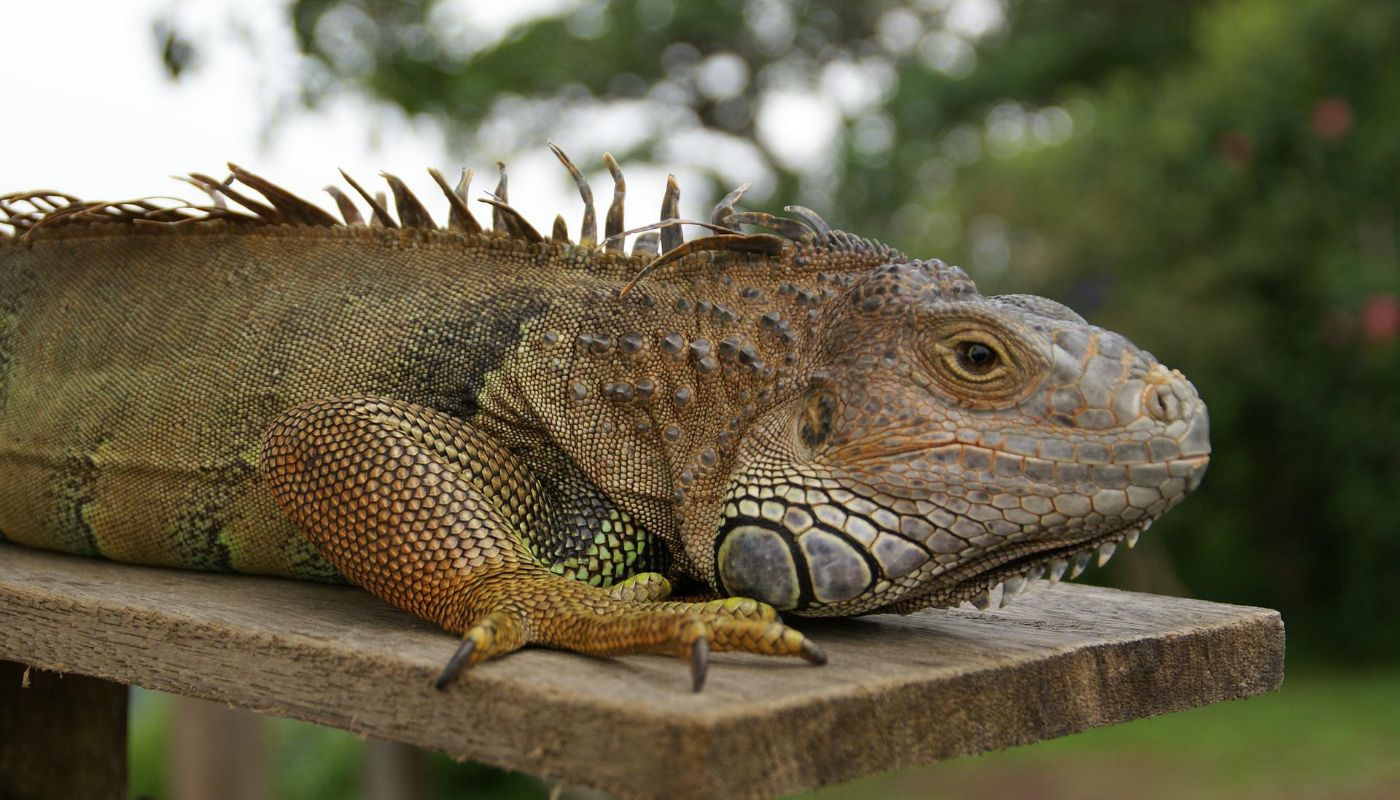
As well as the never ending clutters of harmless geckos that cling to every wall and ceiling on the island – you actually want them around, they eat up all the mosquitoes – there are some other more impressive lizards that inhabit Bali.
The most famous is the Komodo Dragon that isn’t naturally found in the wild in Bali, but can be spotted at some of the island’s conservation spots.
A trip over to Komodo Island, which is just over 5 hours from Bali, will have you just metres from these majestic creatures on a safe guided tour.
Asian Monitor Lizards are the biggest native reptiles in Bali. Often seen scurrying through the rural lands, sometimes in rivers, and very rarely dipping into a villa’s private swimming pool, they can reach up to 3m long. In the same family as the Komodo Dragon, although terrifying, they do not have a venom harmful to humans like their siblings.
Tokay geckos are pretty much an overgrown version of the regular gecko. You will know when these are around thanks to their impressive call that echoes around. Culturally known on the island as being the protector of a home – whom you don’t want to bother – if you are lucky enough to have one of these lizards in your accommodation, treat it like your pet for a good, safe and prosperous stay.
Cats and Dogs in Bali

Like many Southeast Asian countries, Bali is home to a huge population of street dogs.
The Bali dog, or Kintamani dog, is one of the oldest dog species on the planet that has adapted to the ever-changing human population on the island.
The dogs themselves are not a problem in Bali, the Balinese consider them gatekeepers and protectors. It is the rampant spread of disease and mistreatment of the dogs that has led to the increase of charities and non-profit organisations trying to save them.
I know many visitors who have fallen in love with a furry pal and have dog shaped holes in the hearts when they have to return home.
Warning: If you are wandering the streets and see a cute dog, don’t attempt to approach it without caution. Rabies is common and dogs can also be aggressive towards people they don’t know.
Bali also has stray cats, but not nearly the same amount as dogs. They also have their own charities, cafes and boarding around the island.
Other Animals in Bali
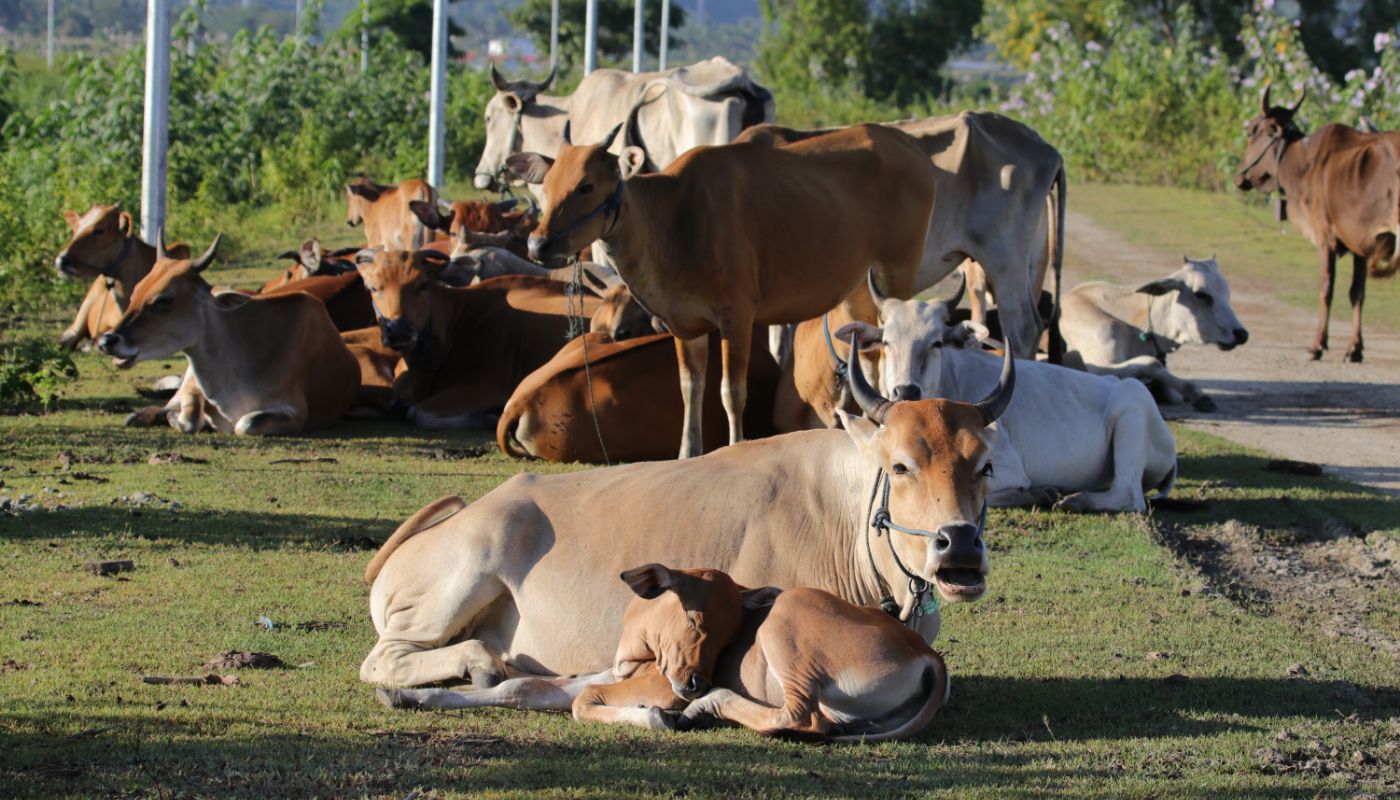
And now for your regular Joe, but equally as cute, animals in Bali.
- Cows
Used on local farms to plow rice paddies and graze fields, the Sapi Bali are a native breed of cow to the island that are well-acclimated to the heat and humidity.
As new modern technologies are used to care for the farms, cows are becoming less needed and not so commonly found.
Often spotted grazing roadside fields and soaking in the sun, Bali cows do not produce enough milk to make them efficient for distribution.
Local Balinese Hindus take good care of their cattle as they are often seen as sacred creatures – although not as protected as those in countries like Nepal or India.
- Birds
There are thought to be around 280 species of birds on the island – both native and not.
The nearly extinct Bali Starling has teams of conservation groups trying to save it including local and government organisations.
Currently safe within the Bali Safari Marine Park and West Bali National Park, numbers are seen to be growing and, hopefully, preventing the loss of this beautiful bird from the island.
Significant for its white feathers, blue eyes and mohawk, if you see this beauty in the wild, you are truly lucky!
- Turtles
The Gili Islands is the most natural and beautiful place to spot turtles in the wild.
Although there are spots in Bali, Turtle Island in Nusa Dua is not totally ethical – more on ethicality soon – and the baby turtle beach releases are also not advised.
If you want to see turtles in Bali, Serangan at the Turtle Conservation and Education Centre is one of the trusted spots.
But venturing to the paradise Gilis and snorkelling right off the shore is the most incredible way to immerse with tropical turtles.
Animal Organisations and Charities in Bali
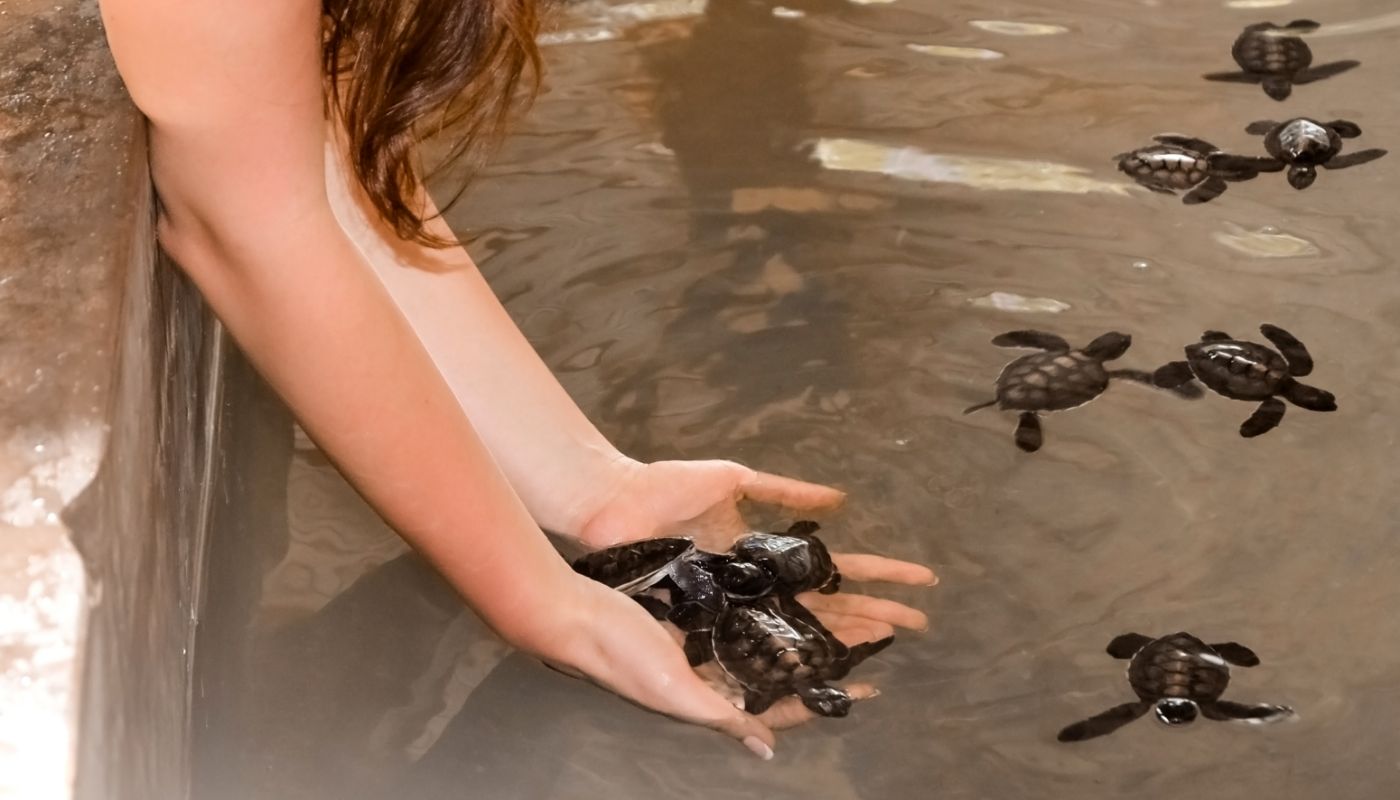
Bali is assisted by government and independent organisations to help with the conservation and care of animals. There are many zoos and safaris on the island that are hiding behind big words and activities to make them appear ethical, when in fact they are problematic.
If you are wanting to visit the wildlife of Bali, it is important to know which organisations to support and which to avoid.
Here are all my favourite places that support the animals of Bali, and some tips for knowing which spots to not go to.
Ethical & Unethical Organisations and Charities in Bali
The best way of knowing if an animal organisation in Bali is ethical or unethical is by taking note of the types of animals they have, and the activities they offer.
For example – elephant riding is a big no no, as is taking pictures with large cats. Any organisation that is offering these animal experiences in Bali should be avoided.
Any non-native animals like lions, cheetahs or jaguars being displayed at a venue can also be a sign of an unethical place.
Finally, the famous luwak coffee is another business in Bali that comes at the cost of animal welfare.
Renowned for being one of the most expensive coffees in the world, the Civet cats involved in the coffee production are kept in small cages and have become the object of wide illegal trading.
Try and avoid stopping off at any of these spots – mostly found in Ubud.
Now, for the ethical animal organisations and charities that you can enjoy and support with no worries.
Turtle Conservation and Education Centre
As previously mentioned, the Turtle Conservation and Education Centre is located in the peaceful area of Serangan, and is the only trusted turtle sanctuary on the island.
Specialising in hatching eggs, rehabilitating injured turtles before being released, and buying eggs from local traders to avoid them being eaten, the centre saves 3 out of 7 species of turtles.
You can tour the centre, learn about the conservation efforts and purchase souvenirs that help to support the project.
Bali Bird Park
Fighting the extinction of Bali’s native birds, and home to a number of incredible other species, Bali Bird Park has 1300 birds in its grounds.
Separated into exhibits based on the bird’s native home – Sumatra, Africa, Australia – the park has recreated their natural habitats.
Along with beautiful tropical plants and greenery, the Bali Bird Park is a place where you can enjoy the stunning colours and sounds of many different bird species.
Neighbouring the Bird Park, Bali Reptile Park is another conservation site for troubled species.
Including Komodo Dragons, crocodiles, snakes and lizards, the park is a place where you can explore and see incredible species of reptile.
With habitats as natural as their native homes, it is a place where endangered reptiles can live and breed safely.
Learn about King Cobras and stroke a tortoise – Bali Reptile Park is an ethical animal organisation in Bali.
Bali Butterfly Park
Home to hundreds of butterflies within a safe, humid environment, Bali Butterfly Park is a conservation organisation in Bali that has protected many of the 15 species of butterfly found in Bali.
As the biggest butterfly park in Asia, it has an impressive collection of fluttering beauties as well as dried specimens in their museum.
Also featuring spiders, beetles and scorpions in their arachnid area for those who love a creepy crawly, it is a fun day out for the family as well as a place where you can support the preservation of these majestic creatures.
Bali Animal Welfare Association - BAWA
Mainly known for their daily rescues of stray and injured dogs around the island, BAWA is a non-profit organisation in Bali that wants to care for all animals.
Located in Ubud and offering island wide assistance, the association relies on donations to provide medical care, temporary shelter, adoption and food to Bali dogs and cats.
The on-call assistance will respond to calls out to emergency cases where a dog or cat, sometimes even a monkey, needs help.
If you are planning a long trip to Bali, you can consider becoming a foster ‘paw-rent’ for a recovering dog or cat, perhaps even volunteer at one of their shelters.
However, the most obvious way to help BAWA is with a monetary donation.You can donate directly on their website with a one-off donation or monthly contribution.
Another non-profit organisation doing their best to diminish the number of stray dogs on the island, The Paws is a charity who create doggy bandanas and accessories to raise money for their services.
Including sterilising and vaccinating street dogs, finding medical assistance for injured animals and hopefully finding foster and permanent homes for dogs, it is a Bali created brand that has spread out worldwide.
Along with their dedicated efforts to provide health and medical services to animals, they also help to rehome dogs across the globe.
Head to their website to discover their range of fun prints and accessories to treat your own fur-child whilst helping the animals of Bali.
Taking care of the dangerous animals of Bali, so you don’t have to, Bali Reptile Rescue is a non-profit organisation that you can call when you have a scary snake or reptile in your home.
Cutting down the need to kill the creatures, the rescue is available day or night. Depending on donations to continue its service, Bali Reptile Rescue saves hundreds of reptiles a year from being killed in fear.
They also offer reptile tours of Bali where you can witness them in the wild where the populations are still thriving.
Check out their website for more information about the organisation and how to donate.
Bali Sea Turtle Society
Sea turtles are a high commodity in Bali as they’re a traditional delicacy dish and have a huge trading value. That’s where the Bali Sea Turtle Society steps in – they protect the animals as well as educate the community on how special they are, and what they can do to help.
Focusing on nest relocation and release, the society responds to calls and also does their own checks to ensure they are able to find turtle eggs before they are eaten by animals or collected by sellers.
You can donate to the cause, or even buy from the Bali Sea Turtle Society wish list for equipment that they need to continue their work.
Have a look at their website for more information on what you can do to help.
Saving Bali dogs around the island, Mission Pawsible is another great organisation that works to save injured street dogs, rehome them where needed and also assist in finding lost dogs – unfortunately that is what brought my attention to the organisation when I lost my pup.
They rescue struggling street dogs and find them medical care, as well as a safe foster home where they can recover before being homed.
Selling super cute bandanas, accessories and furniture, the organisation is non-profit and relies on donations and purchases to continue their work.
They are so amazing at what they do, they have been featured multiple times on the famous The Dodo page, showcasing their success stories from grubby little pups on the street to playful shiny dogs in a comfortable, safe home.
Their website has everything you need to know, their shop, videos and ways to donate.
Villa Kitty Foundation
Cats and kittens are the more forgotten of the needy animals in Bali, but there are organisations that focus just on kitties!
Villa Kitty is located in Ubud and helps stray cats by providing medical help and rehoming.
You can visit the villa to play with the cats and kittens, volunteer to assist with feeding babies and even foster or adopt.
Working off donations, the charity stocks all the necessary amenities needed to care for rescued kittens and cats so you can even purchase right off their wish list.
The last organisation I am going to mention is the Bali Pet Crusaders.
They venture the island sterilising street dogs, and pet dogs of local families who are not able to afford it themselves.
Committing to sterilisation days when 10s of dogs will be treated at one time, they are doing their best to tackle the ever-growing street dog population.
Thanks to the years of kind donations the Bali Pet Crusaders receive, they have been able to sterilise 15,000 dogs since 2017. Incredible work!
Final Thoughts
Whether you are travelling to Bail for a once in a lifetime trip, or planning to move to the tropical paradise, it is important to be wary of dubious animal organisations and cautious of animals on the street.
However, using your time to donate or volunteer to one of these amazing charities will not only be good karma for you, but a lot of fun too!
Visit the ethical animal spots, see incredible creatures and immerse in the stunning wildlife that the beautiful landscapes of Bali offer.

